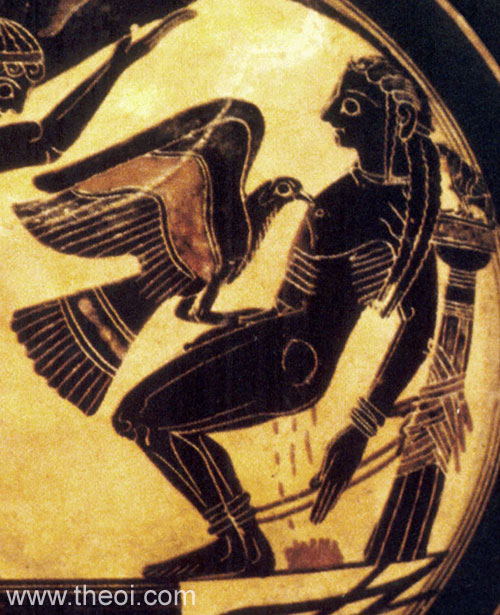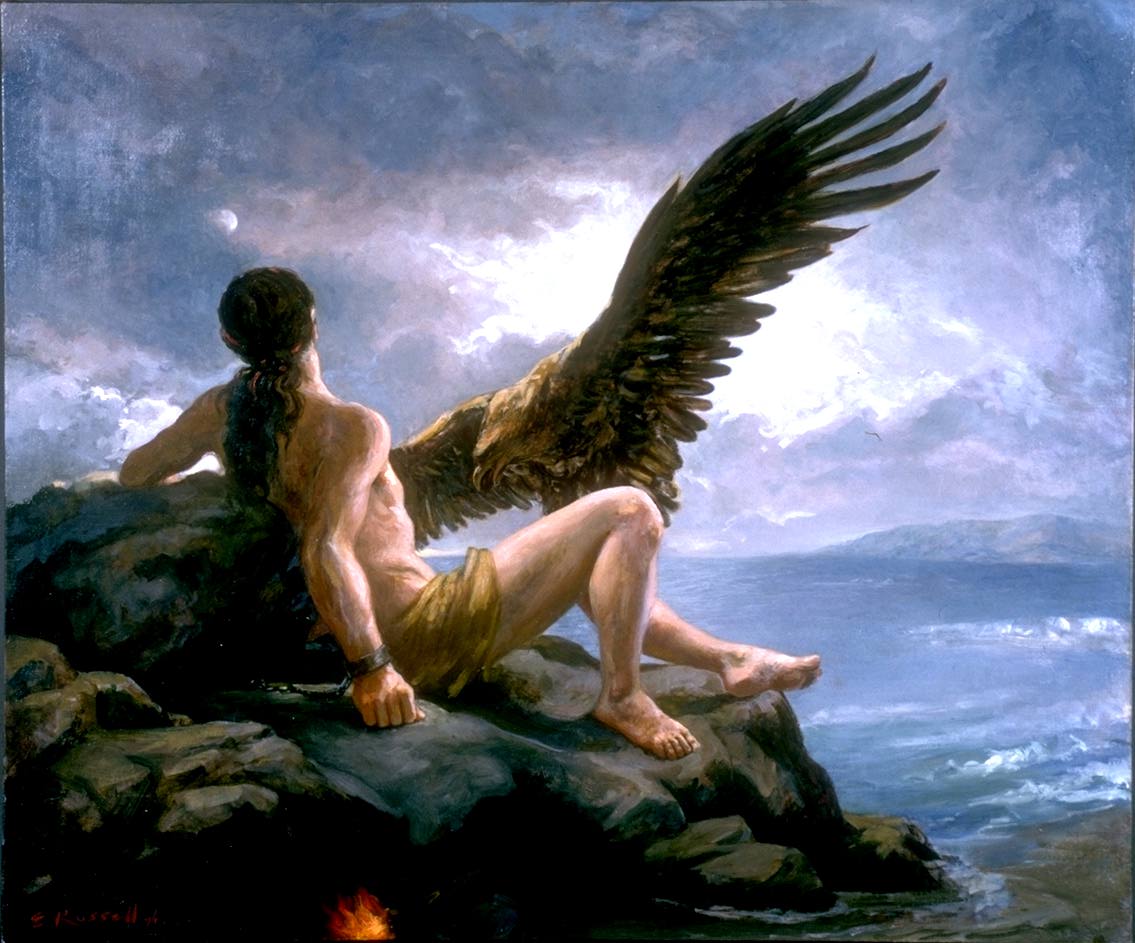


Some notes on Prometheus
- Overwhelming knowledge of wanting to know about things. Pandora’s box is an example of this
- Creation of people in your own image out of the dust
- Fundamental stories – share fundamental patterns from Biblical myths
- Stealing fire – smuggled out the fire in a fennel stalk.
- Peter Paul Rubens – Flemish Baroque painter, emphasized sensuality, Counter-Reformation alter-pieces, portraits, landscapes, and historical paintings of mythological and allegorical subjects
- Spain had a colony in the early 17th century, the Netherlands. The political structure was still Spanish in Ruben’s time. He entered the diplomatic service, and was involved in attempts to stave off the war which promptly devastated Europe. He entered the service of the ruling power and for his diplomatic efforts on behalf of Spanish interests, was heavily rewarded (knighted)
- Rubens was a Catholic, and Spain was one of the great Catholic powers. The Counter-Reformation is linked here – the Holy Roman Empire is an important factor in this. Existed symbolically.
- Ruben’s painting of Prometheus; the figure is almost upside down, reminds us of the figure of Christ when he is taken off the cross, and Saint Peter being martyred. Suggestion was that here was a presentation of ever-lasting torment and that it is an image of the true faith being ever-lasting and tormented at the time, with all the strife in the world. Interesting use of the subject – working as a metaphor for what is happening in his lifetime.
- 1618 – the Thirty Years War and a huge response to the Reformation.
Prometheus, meaning foresight, was a Titan hero, and trickster figure who was credited with the creation of man from clay, and who defied the gods and gave fire to humanity, which enabled progress and civilization. He is known for his intelligence and as a champion of mankind. His punishment is a consequence of the theft of fire which is a major theme of his mythology and in popular works and art. Zeus sentenced him to eternal torment for his transgression against the gods. Prometheus, immortal, was bound to a rock where each day an eagle (Zeus himself where he would change form) would be sent to feed on his liver, and then he would heal over night, for it to happen again the next day. The liver was thought to be the seat of human emotions. In some versions of the myth, Prometheus is freed by the hero Heracles. In the Western classical tradition, Prometheus is a figure of human striving for scientific knowledge, in the risk of overreaching. Mary Shelley gave The Modern Prometheus as the subtitle to her novel, Frankenstein.
Other versions
- Prometheus, a poem by Johann Wolfgang von Goethe
- COVER thy spacious heavens, Zeus,
With clouds of mist,
And, like the boy who lops
The thistles' heads,
Disport with oaks and mountain-peaks,
Yet thou must leave
My earth still standing;
My cottage too, which was not raised by thee;
Leave me my hearth,
Whose kindly glow
By thee is envied.
I know nought poorer
Under the sun, than ye gods!
Ye nourish painfully,
With sacrifices
And votive prayers,
Your majesty:
Ye would e'en starve,
If children and beggars
Were not trusting fools.
While yet a child
And ignorant of life,
I turned my wandering gaze
Up tow'rd the sun, as if with him
There were an ear to hear my wailings,
A heart, like mine,
To feel compassion for distress.
Who help'd me
Against the Titans' insolence?
Who rescued me from certain death,
From slavery?
Didst thou not do all this thyself,
My sacred glowing heart?
And glowedst, young and good,
Deceived with grateful thanks
To yonder slumbering one?
I honour thee! and why?
Hast thou e'er lighten'd the sorrows
Of the heavy laden?
Hast thou e'er dried up the tears
Of the anguish-stricken?
Was I not fashion'd to be a man
By omnipotent Time,
And by eternal Fate,
Masters of me and thee?
Didst thou e'er fancy
That life I should learn to hate,
And fly to deserts,
Because not all
My blossoming dreams grew ripe?
Here sit I, forming mortals
After my image;
A race resembling me,
To suffer, to weep,
To enjoy, to be glad,
And thee to scorn,
As I!
- Franz Kafka's short piece
- According to the first, he was clamped to a rock in the Caucasus for betraying the secrets of the gods to men, and the gods sent eagles to feed on his liver, which was perpetually renewed.
According to the second, Prometheus, goaded by the pain of the tearing beaks, pressed himself deeper and deeper into the rock until he became one with it.
According to the third, his treachery was forgotten in the course of thousands of years, forgotten by the gods, the eagles, forgotten by himself.
According to the fourth, everyone grew weary of the meaningless affair. The gods grew weary, the eagles grew weary, the wound closed wearily.
There remains the inexplicable mass of rock. The legend tried to explain the inexplicable. As it came out of a substratum of truth it had in turn to end in the inexplicable - Prometheus on his Crag, poem by Ted Hughes
- Prometheus in His Crag
Pondered the vulture. Was this bird
His unborn half-self, some hyena
Afterbirth, some lump of his mother?
Or was it condemned human ballast -
His dying and his death, torn daily
From his immortality?
Or his blowtorch godhead
Puncturing those horrendous holes
In his human limits?
Was it his prophetic familiar?
The Knowledge, pebble-eyed,
Of the fates to be suffered in his image?
Was it the flapping, tattered hole -
The nothing door
Of his entry, draughting through him?
Or was it atomic law -
Was Life his transgression?
Was he the punished criminal aberration?
Was it the fire he had stolen?
Nowhere to go and now his pet,
And only him to feed on?
Or the supernatural spirit itself
That he had stolen from,
Now stealing from him the natural flesh?
Or was it the earth's enlightenment -
Was he an uninitiated infant
Mutilated towards alignment?
Or was it anti-self -
The him-shaped vacuum
In unbeing, pulling to empty him?
Or was it, after all, the Helper
Coming again to pick the crucial knot
Of all his bonds?
Image after image. Image after image. As the vulture
Circled.
Circled
Thanks for reading!
No comments:
Post a Comment